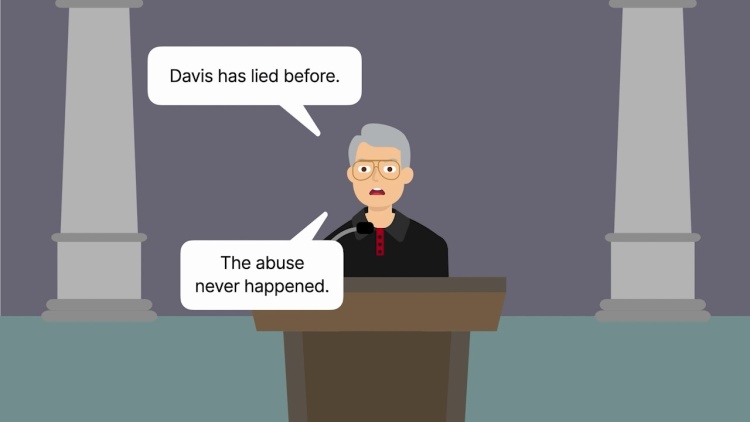Davis v. Boeheim
New York Court of Appeals
22 N.E.3d 999 (2015)
- Written by Craig Conway, LLM
Facts
Bernie Fine was the associate head coach of the men’s basketball team at Syracuse University (university) (defendant). Following several reports by media outlets that Fine had sexually molested Robert Davis and his stepbrother, Michael Lang (plaintiffs), over a 20-year period, the university’s head basketball coach, James Boeheim (defendant), made statements defending Fine, his colleague and long-time friend. Specifically, Boeheim issued a written statement and later verbally reiterated that a five-month internal investigation found that the plaintiffs had lied about the alleged molestation and merely sought to financially profit from the claims. Additionally, Boeheim denied any knowledge of the claimed events and further asserted that the plaintiffs had lied about Boeheim seeing the plaintiffs in Fine’s hotel room during the 1987 Final Four men’s basketball tournament. Boeheim’s statements were subsequently printed in several news articles. The plaintiffs filed suit against Boeheim and the university, claiming that the printed statements had caused them economic, emotional, and reputational harm. The defendants filed a motion to dismiss the complaint on the ground that the claims were nonactionable opinion and not facts. The trial court agreed and granted the defendants’ motion. The plaintiffs appealed. The appellate division affirmed. The Court of Appeals of New York granted certiorari to review.
Rule of Law
Issue
Holding and Reasoning (Rivera, J.)
What to do next…
Here's why 907,000 law students have relied on our case briefs:
- Written by law professors and practitioners, not other law students. 47,100 briefs, keyed to 996 casebooks. Top-notch customer support.
- The right amount of information, includes the facts, issues, rule of law, holding and reasoning, and any concurrences and dissents.
- Access in your classes, works on your mobile and tablet. Massive library of related video lessons and high quality multiple-choice questions.
- Easy to use, uniform format for every case brief. Written in plain English, not in legalese. Our briefs summarize and simplify; they don’t just repeat the court’s language.





